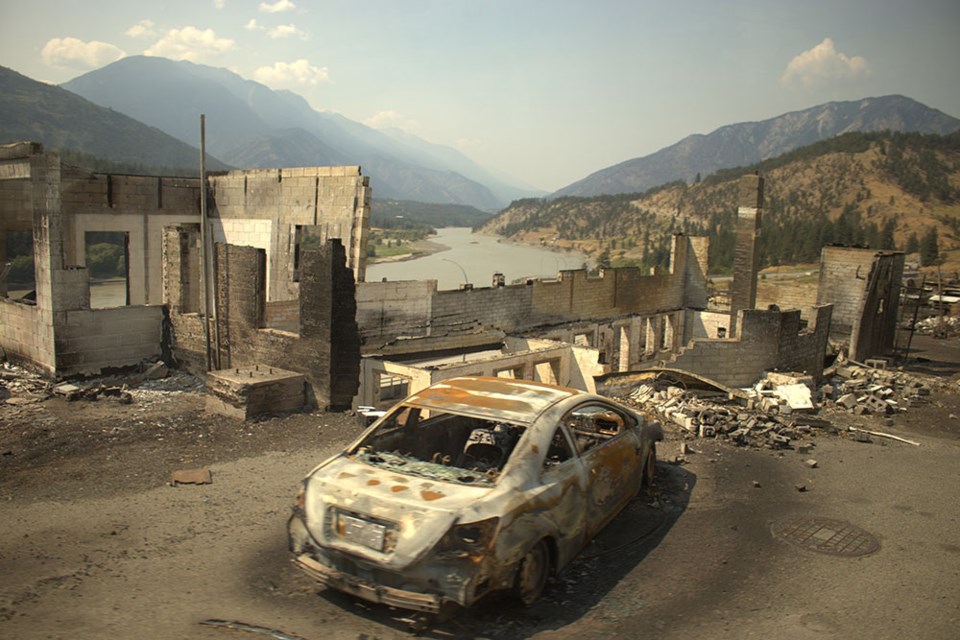A BC Supreme Court justice has declined to certify a class action lawsuit for Lytton residents impacted by 2021’s devastating wildfire, but has left the door open for lawyers to try again.
Lawyers representing lead plaintiff Jordan Spinks argued in court filings that the 2021 blaze that destroyed much of the Village of Lytton and the Lytton First Nation reserve was sparked by trains passing through the village.
Both Canadian Pacific Railway and Canadian National Railway were named defendants, alongside a railway compliance company, the federal government, five unnamed corporations, one John Doe and one Jane Doe.
On Wednesday, Chief Justice Christopher E. Hinkson rejected the class-action certification on several grounds, but focused closely on the lack of hard evidence linking the wildfire to the rail lines.
“Beyond the assertion that several trains passed through Lytton on the day the wildfire started, and that there was some vegetation adjacent to the tracks, there are no facts alleged as to how any of CPR’s or CNR’s trains, railways, or employees caused the wildfire,” Hinkson ruled.
The ruling went on to call the lawsuit’s claims “bound to fail…overbroad and vague.”
The justice also found issues with the proposed class that would be included in the lawsuit, which proposed to lump groups of people that suffered different types of losses into one “single colossus.”
The many subclasses and different groups of people proposed to be included in the lawsuit would create a “monster of complexity,” Hinkson ruled.
The justice did, however, determine that a class action could ultimately be the best way to advance the claims put forward in the lawsuit.
While the current lawsuit has “fatal” flaws, Hinkson said “it may be possible to certify a class action if the plaintiff can cure the deficiencies in his pleadings.”
Slater Vecchio LLP, the law firm behind the proposed class action, issued a statement Thursday expressing optimism.
"We respect the court's ruling and appreciate the opportunity to amend our pleadings. We remain confident that a class action is still the best avenue to represent the interests of the affected individuals,” said Anthony Vecchio, K.C.
The law firm encouraged anyone impacted by the fire to retain documentation like expense receipts.


